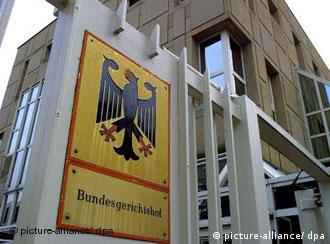Court Overturns Controversial Arrest of Sociology Professor
Germany's Federal Court has overturned the arrest of a sociologist accused of being a member of an extreme left group. The professor's imprisonment had sparked protest by academics on both side of the Atlantic.
Professor Andrej Holm was arrested on Aug. 2 on suspicion of being a member of the militante gruppe (mg), a left wing militant group.
Holm, a sociologist at Berlin's Humbolt University, was released on bail at the end of August after three weeks in prison. The Federal Prosecutor's Office immediately appealed this decision.
In its latest ruling, the German Federal Court in Karlsruhe on Wednesday rejected the appeal, and at the same time, ruled that the original arrest warrant was unfounded.
Too little evidence
In its warrant, the prosecutor's office had said Holm had twice met with a suspected member of mg and that the researcher used "keywords and phrases" in his academic texts that had appeared in documents written by mg, such as the term "gentrification," according to news reports.
It also said that "as an employee of a research institute, [Holm] had access to libraries where he could inconspicuously do the research required for the founding of a militant group."
The Federal court ruled that evidence showed the 36-year-old Holm was "involved in Berlin's extreme left scene", and also had "conspirative contact" to at least one mg member, who is accused of attempting to set fire to three German army trucks. Holm and his contact had shared a single yahoo account to leave coded draft mails for each other.

The Federal court, however, said this evidence did not meet the requirements of showing it was a "strong possibility" that Holm himself was a mg member.
Protests from renowned intellectuals
Holm's imprisonment had sparked protest on both sides of the Atlantic.
In August, more than 100 academics from Britain, Canada, Germany, the Netherlands, the United States and other countries called on German Federal Prosecutor Monika Harms to release the sociologist. "We strictly oppose the use of violence as endorsed and practiced by the 'militant group,'" one of the letters reads. "At the same time, however, we strongly object to the notion of intellectual complicity adopted by the federal prosecutor's office in its investigation. …Such arguments allow any piece of academic writing to be potentially incriminating," the letter said.

